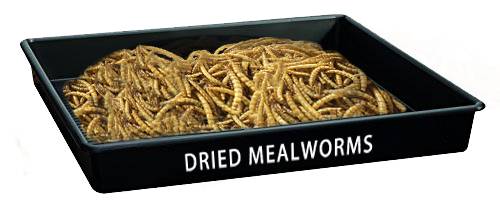
Introduction:
As the global challenges of climate change and depleting natural resources loom, the need for sustainable agricultural practices has never been more critical. In this context, mealworm frass, the excreta of mealworms, has emerged as a promising solution that goes beyond its role as an organic fertilizer. This remarkable substance has the potential to revolutionize the way we approach crop nutrition and environmental stewardship.
Methodology:
The study delved into the properties of mealworm frass derived from Tenebrio molitor L., a species cultivated on an industrial scale by Ÿnsect (ŸnFrass, Paris, France). These mealworms were fed exclusively with locally sourced agricultural raw materials, meeting stringent French and European regulations for farm animal feeds. To ensure its compatibility with organic farming and eliminate any chemical inputs, the frass underwent a hygienization process at 70°C for 60 minutes.
Laboratory incubations were performed to observe the kinetics of frass mineralization, which revealed that a substantial 37% of total N was rapidly available to plants within just 17 days. Additionally, comprehensive soil analyses provided insights into the positive impact of mealworm frass on soil health and microbial activity.
Results & Discussion:
Beyond its nutrient-rich composition, mealworm frass exhibits remarkable versatility in its application. With an NPK ratio of 4-3-2, it offers a well-balanced nutrient profile that can cater to a wide array of crops, rivaling the effectiveness of traditional fertilizers. Furthermore, the frass’s even distribution of essential elements like phosphorus (P), potassium (K), and calcium (Ca) within the organic matter ensures uniform nutrient dispersion upon application, promoting optimal plant growth and yield.
The high organic matter content (approximately 80%) of mealworm frass nurtures soil microorganisms, fostering a thriving and diverse ecosystem. This interaction enhances nutrient availability and uptake by plants, maximizing agricultural productivity. Moreover, studies have highlighted the synergetic relationship between mealworm frass and earthworms, creating a mutualistic environment that further boosts nutrient cycling and enriches the soil.
The advantages of mealworm frass extend beyond crop nutrition, as it also plays a significant role in mitigating environmental impact. Its reduced water-soluble phosphorus content compared to conventional fertilizers prevents excess P runoff, minimizing environmental pollution and eutrophication. Furthermore, the potential to increase soil organic carbon storage contributes to carbon sequestration and aids in combatting climate change.
Conclusion:
Mealworm frass is undoubtedly more than just an organic fertilizer; it embodies a transformative approach to sustainable agriculture. As we strive to secure a resilient and green future, mealworm frass stands as a beacon of hope, offering a holistic solution that enhances crop productivity, soil health, and environmental sustainability. By embracing this natural marvel, we can chart a course towards a thriving and harmonious coexistence with our planet, cultivating a greener world for generations to come.